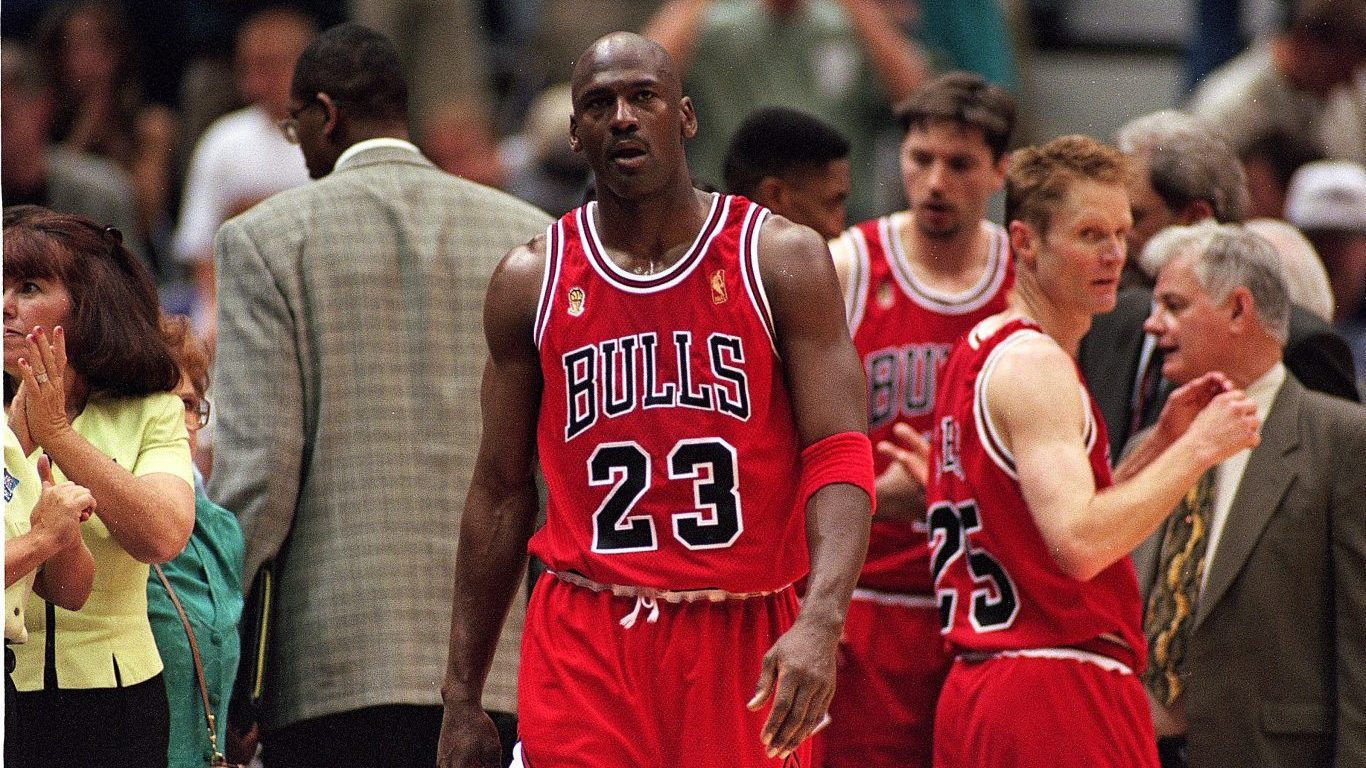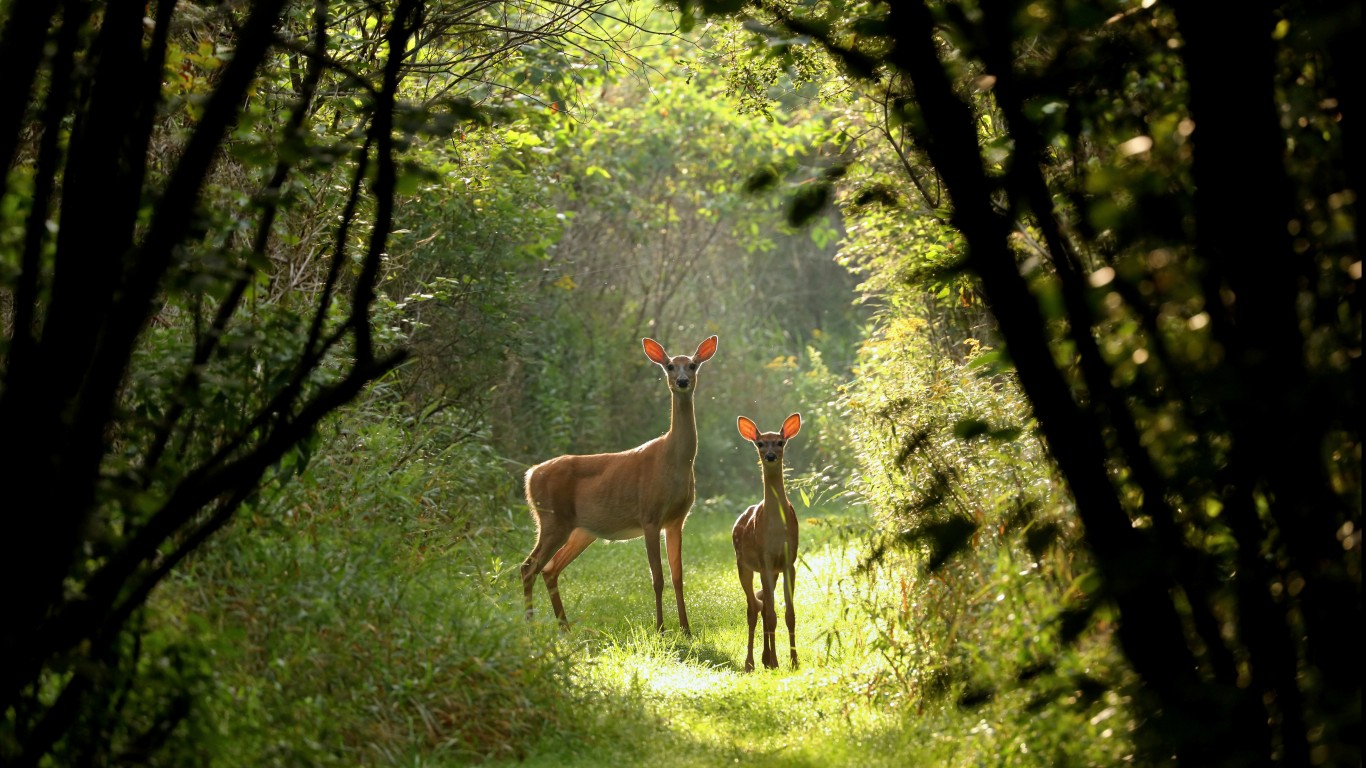
Technically speaking, if we include subspecies, there are around 58 species of deer in North America. For most people in the United States, referencing “deer” usually means whitetail, blacktail, or mule deer. Still, the overarching deer “family” is much broader and includes species like moose, elk, and reindeer. Moose, in fact, are the largest members of the deer family in the world! North America has some of the best trophy hunting in the world, and there are some certified monsters that have been bagged over the years. Today, we are going to break down the 15 largest deer ever recorded in the United States, spread across the most commonly recognized species. When available, we’ll also dive into a little of the backstory of how the deer was bagged in the first place. Let’s get started.
To compile this list, 24/7 Wall Street used sources from various record-keeping sites, as well as publications covering some of the records from a journalistic perspective. An effort was taken to ensure that each of these records occurred in the United States, although some don’t have any specific story or description behind them (especially the blacktail deer). Additionally, the hunter and most common trophy metric (in inches) has been included in the title.
Whitetail Deer
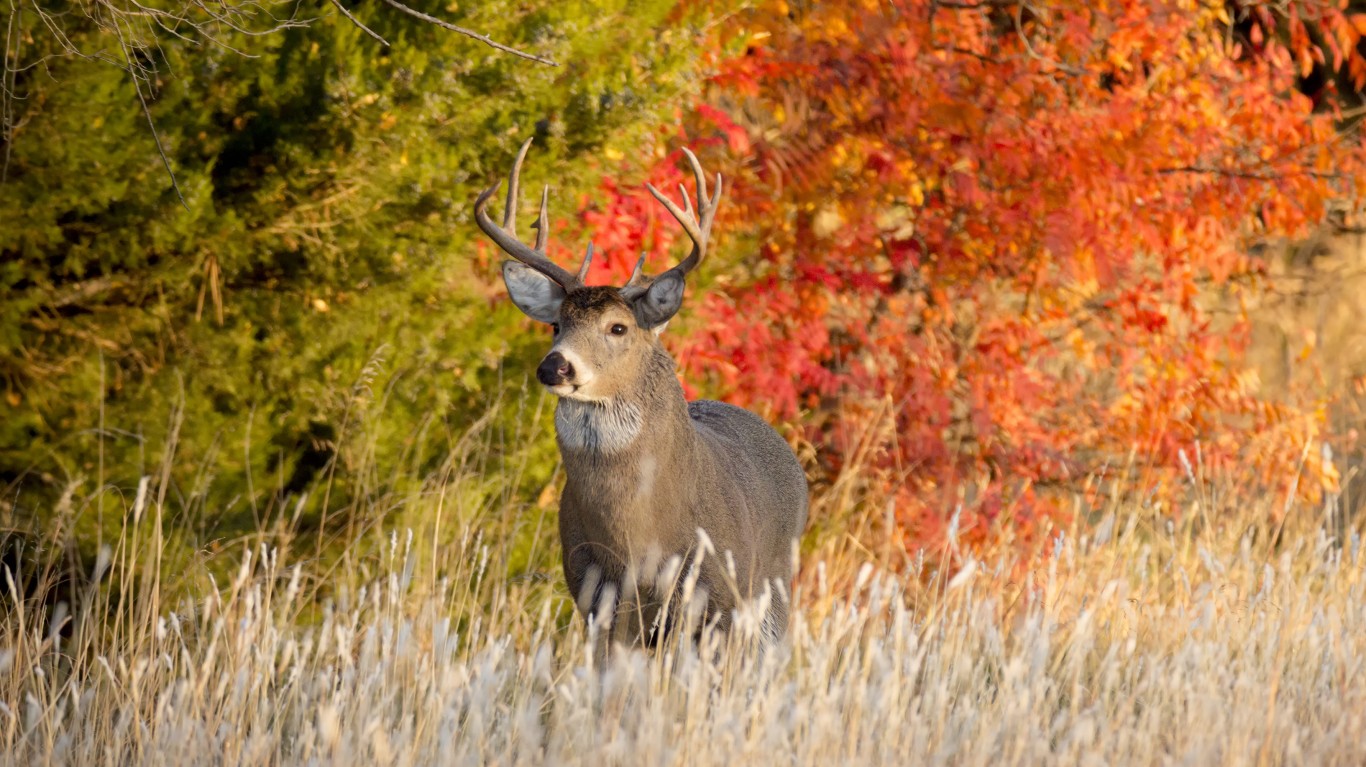
Whitetail deer are probably the most ubiquitous deer in the United States. Their range extends across most of the country, and in many cases, they have interbred with the other species (mule and blacktail), creating hybrids around species’ borders.
1. David Beckman – 333-7/8
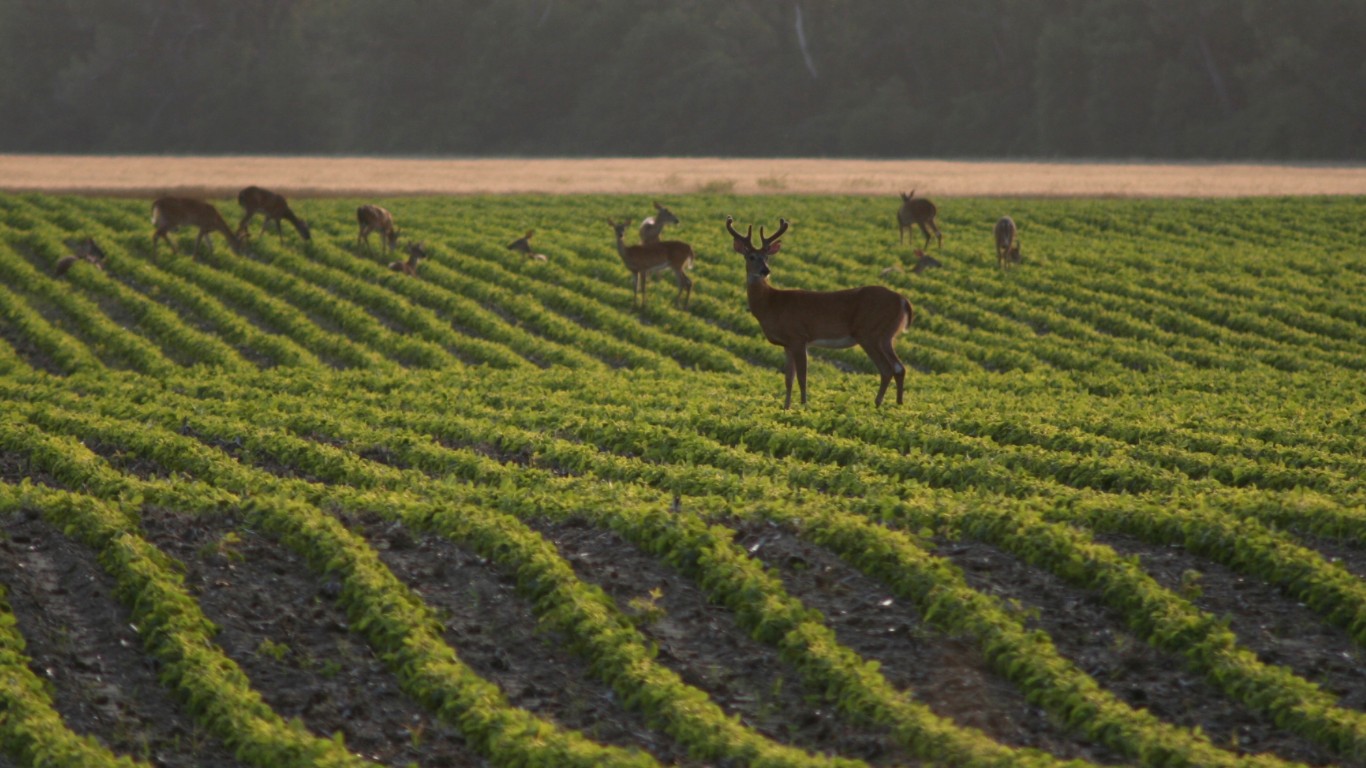
The largest whitetail deer ever bagged in the United States was recorded in November 1981 by a hunter named David Beckman in Missouri. Beckman noticed a dead deer on the side of the road, within someone’s property limits, and asked to take it home. The owners let him, and when it was officially measured, it caused an uproar. The rack weighed more than 11 lbs, and the situation surrounding it was strange; people fought the new record-holding ruling. Some claim this was a pen-raised buck, but it was still accepted by authorities and is not on display in the Missouri Department of Conservation.
2. Dick Idol – 328-2/8
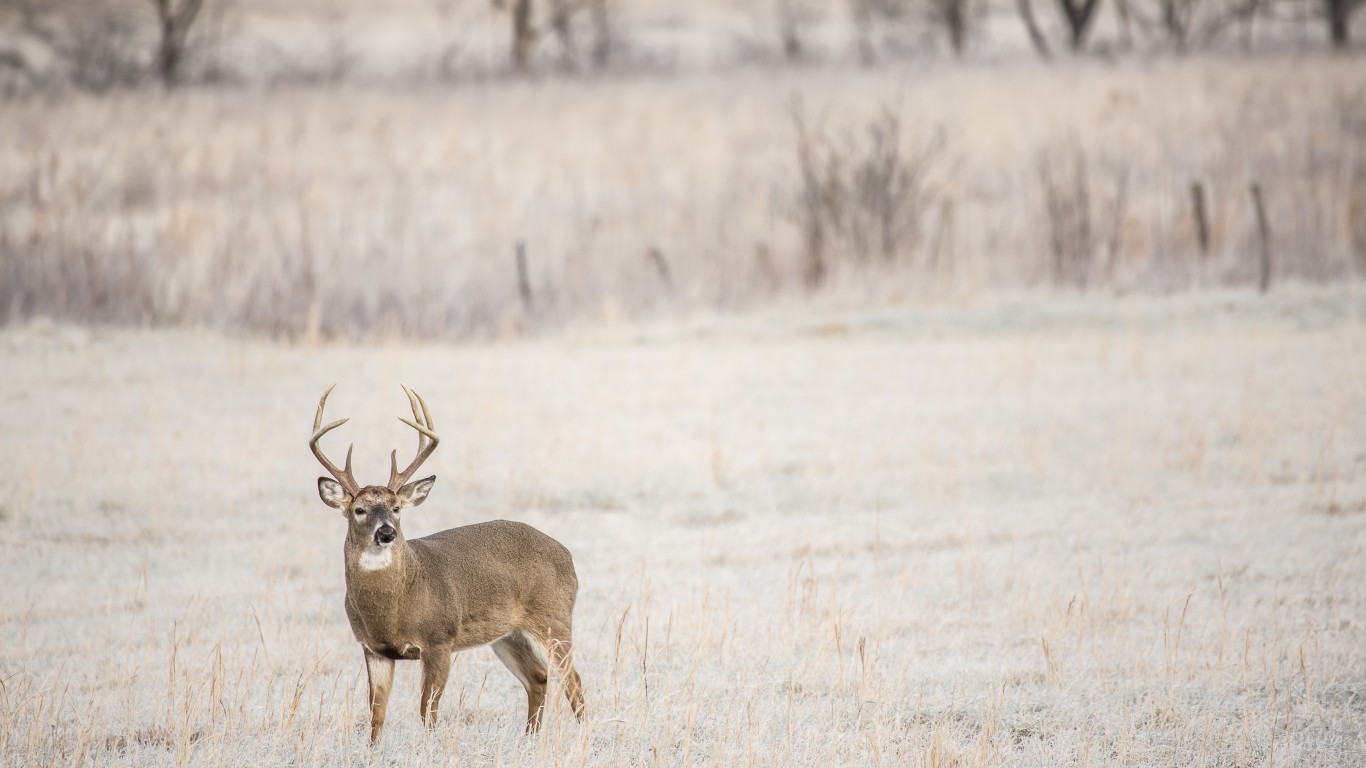
Dick Idol bagged what is today known as the “hole in the horn buck” in 1940 in the state of Ohio. Idol got a tip from a collector that there was a massive whitetail hanging around Kent and ended up buying it. It was originally found after a train hit the deer. The nickname came from a debate about a hole in the antlers, with some saying it was from a piece of fencing that it had become stuck in, while others claimed it was drilled by a manager who was trying to keep it straight when it was hung on a wall, hence, the hole.
3. Luke Brewster – 327-7/8
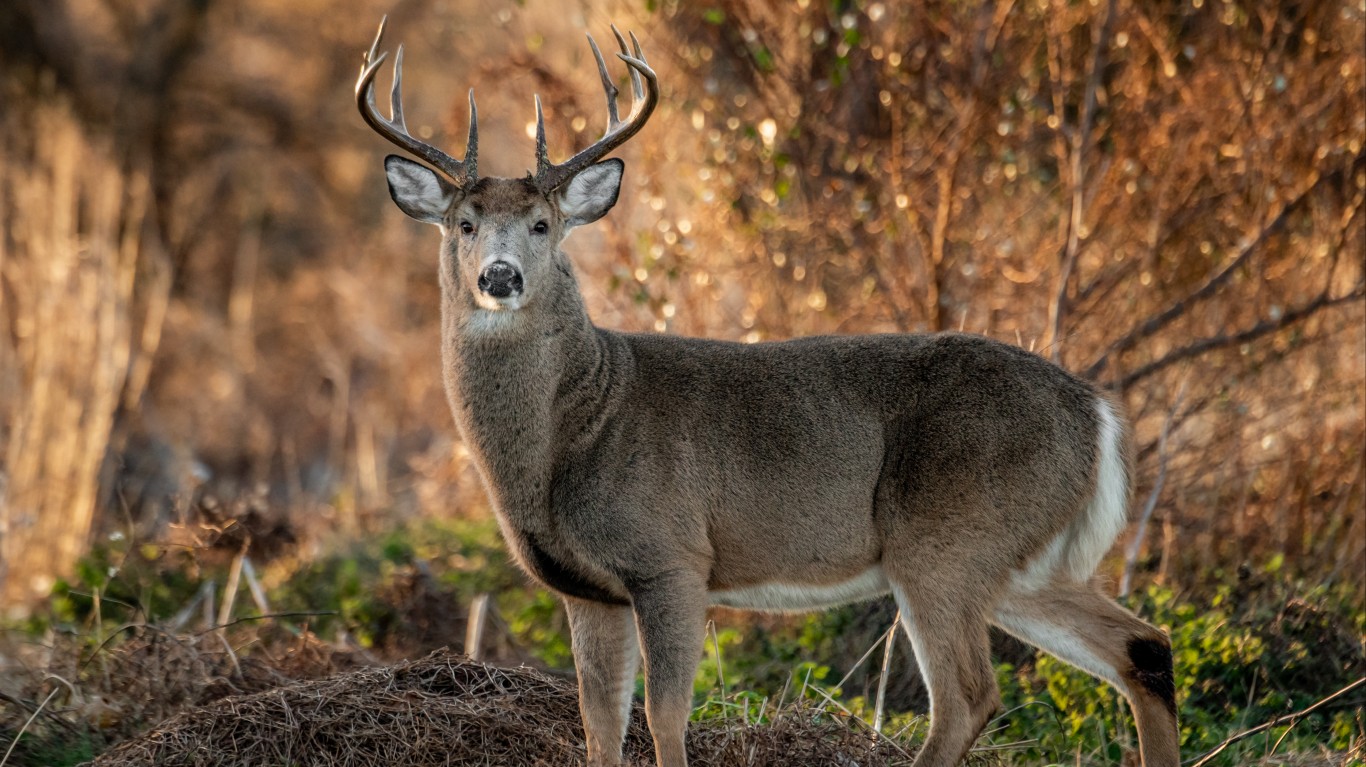
Known as the “Brewster Buck,” the original name for the buck was Mufasa, after The Lion King. In 2017, Mufasa had a reputation as being a massive trophy, and was almost killed before an arrow was deflected by a branch. Eventually, Brewster, using a bow, brought down the buck and realized it was a record holder. Even today, the Brewster Buck is recognized by Boone and Crockett as the largest hunter-killed whitetail and by Pope and Young as the World Record non-typical whitetail.
Mule Deer
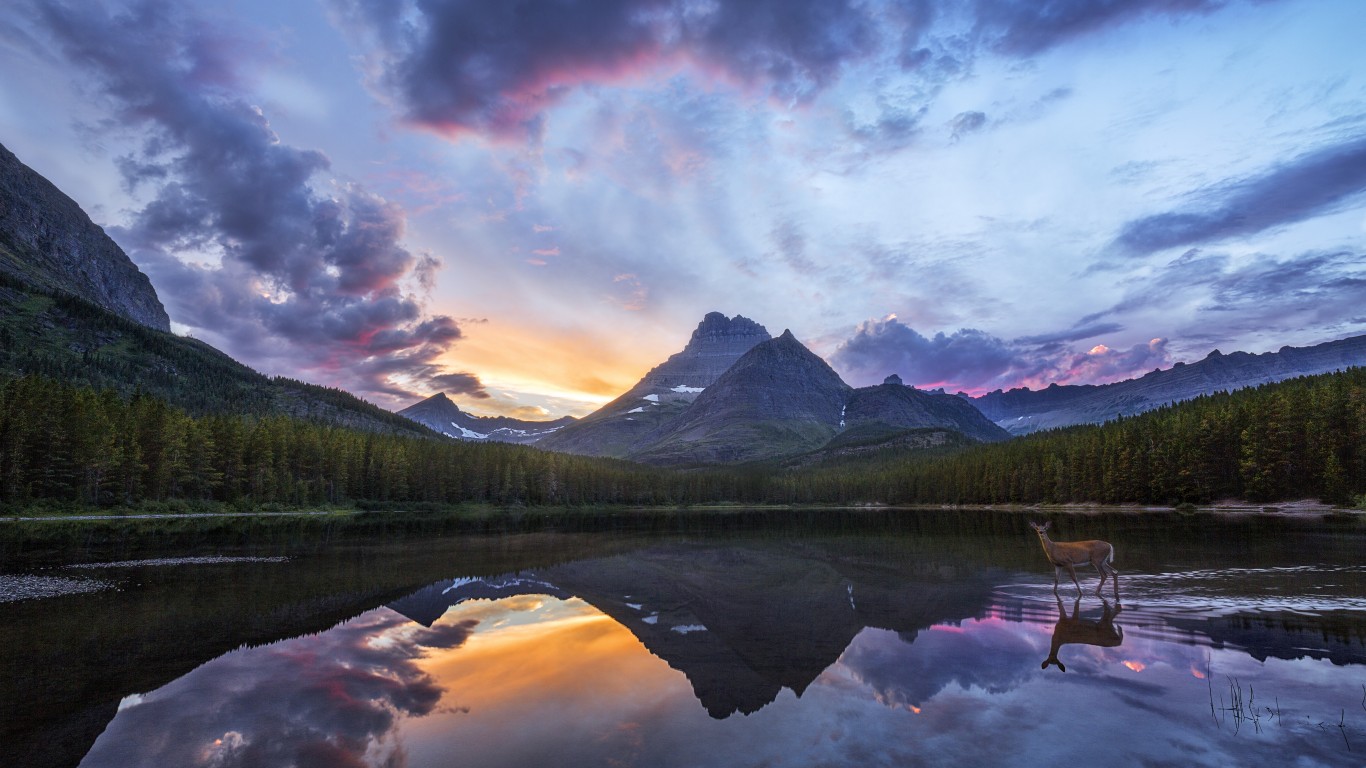
Mule deer are indigenous to western North America and get their name from their ears, which look like a mule. Technically, two mule deer subspecies are grouped under black-tailed deer. On average, mule deer are larger-bodied than whitetail deer but have many similar features.
1. Doug Burris Jr. – 226-4/8

During something known as the “poor boy trip.” Doug Burris and his friends left San Antonio, headed to Colorado, and left on foot for a bit of hunting. Using a rattle, Doug attempted to bring in a mule (muley), eventually passing on at least six before day four came around. Finally, through the rain, he spotted his target. Accidentally spooking the buck, he shouldered his .264 and fired, bringing the deer down. Months later, he got a call from his taxidermist, Ed, telling him, “I think your buck may be the best typical ever taken.” Turns out it was!
2. Anon. Wyoming – 217

Little is known about the buck from Hoboack Canyon, a location just south of Jackson Hole, Wyoming. It was killed in 1925 for meat, and the head was left behind. This wasn’t trophy hunting; this was survival. Eventually, a ranch hand found the rack and brought it to a saloon, hanging it. Eventually, it was measured, coming in as the largest typical ever recorded at that time. It’s still on display in the Jackson Hole Museum.
3. Steve Stayner – 216-2/8

Steve Stayner happened upon a record-breaking Arizona buck in 1994 while looking for deer in Coconino County. When he thought he saw a white towel, he made his way over, only to find it was the bones of a massive mule deer. From the evidence, a mountain lion had killed it. Taking the rack back to his dad, a Boone and Crockett recorder (how lucky can you get), the tape showed that the buck was a record-breaker!
Blacktail Deer

Blacktail deer are technically related to mule deer but are usually split into two categories: Sitka and Columbia. Between them, Columbia are slightly larger and range from northern California up through Washington. Sitka are smaller and range from British Columbia up through southern Alaska. We tried to incorporate both into this list.
1. Lester H. Miller – 182-2/8
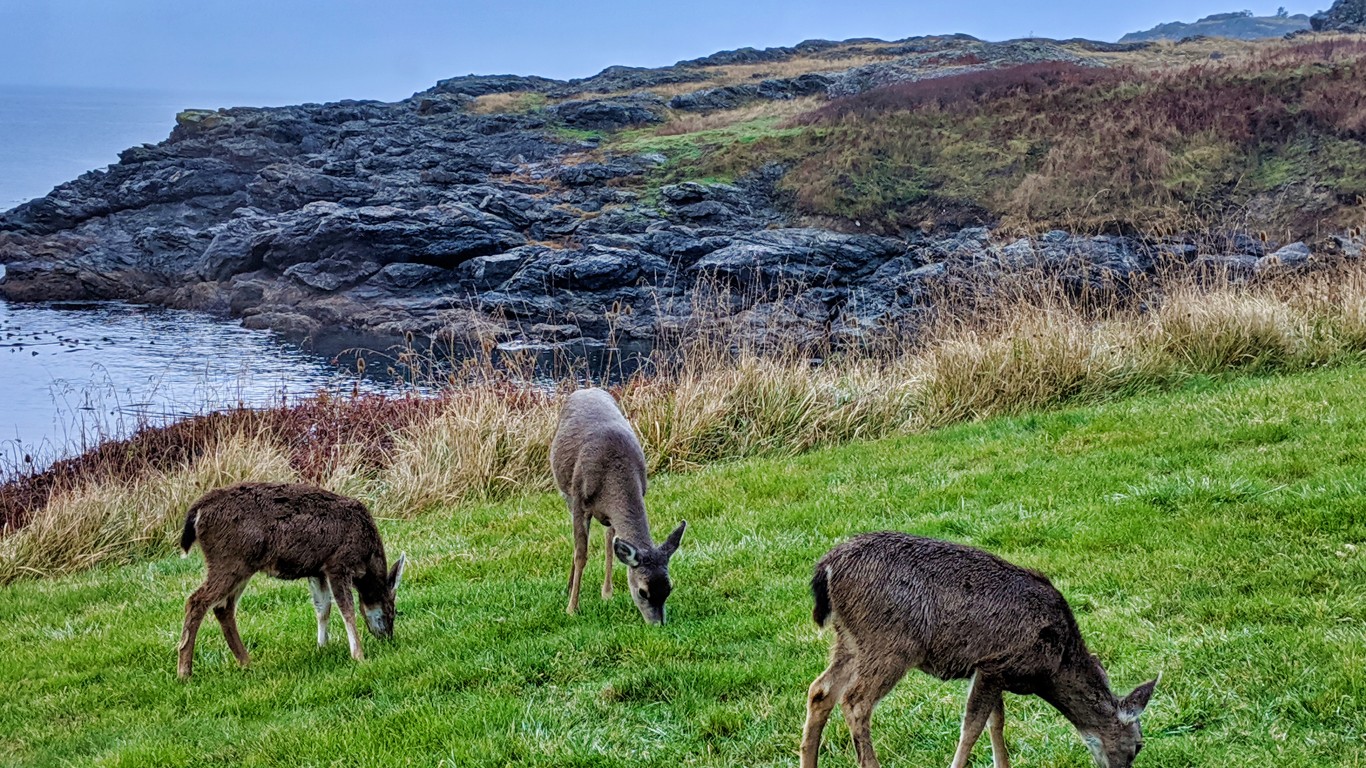
Lester Miller has one of the most famous stories around when it comes to blacktail deer. After accidentally coming face-to-face with a massive buck in Washington, Miller knew that it was his life’s goal to find and bag the trophy. It took four years.
“At Grange meetings, livestock auctions, and wherever people gathered in the nearby towns of Chehalis, Centralia, Fords Prairie, and Adna, it was not unusual to hear someone mention this majestic animal,” Miller said. “Mostly, they would talk about his huge antlers, four points or bigger. Of course, the stories grew in the telling and soon he was almost a legend. Although I had twice jumped this deer out of his bed, and had seen him running down a runway on three or four different occasions, I hadn’t fired a shot at him, fearful that I might wound him and not make a clean kill.” – Boone-Crockett
Eventually, Miller had his chance. Tracking his buck, he took his shot from 80 yards away, dropping the animal instantly.
2. William Steele – 134

The largest non-typical Sitka deer ever recorded was taken on Prince of Wales Island, Southeast Alaska in 1987.
3. Charles Hikari – 116-3/8
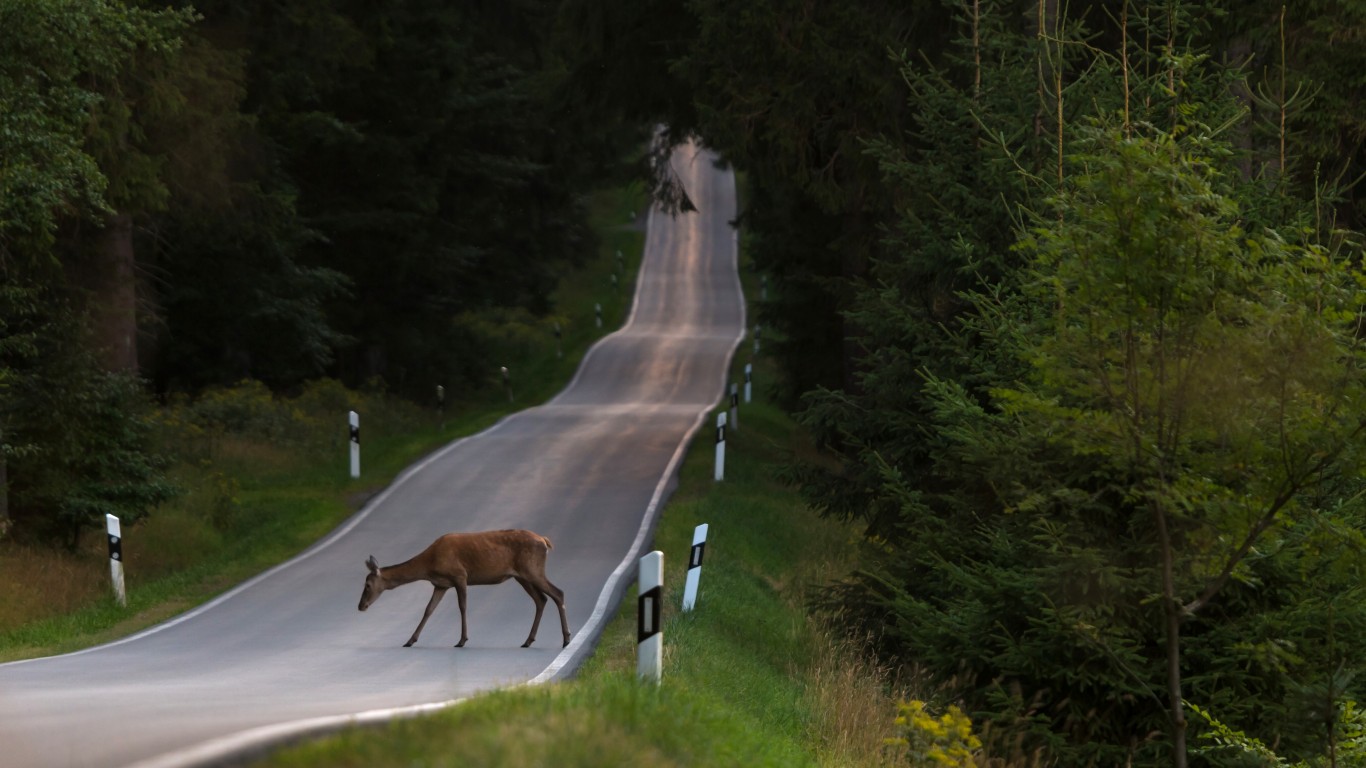
While no story exists for Charles Hikari’s trophy, he is listed on the Pope & Young records as having the largest Sitka blacktail ever taken.
Moose

Moose, while not commonly viewed as deer, are scientifically part of the deer family. In fact, they are the largest species of the family, not just in North America but all over the world.
1. Rex J. Nick – 266-4/8
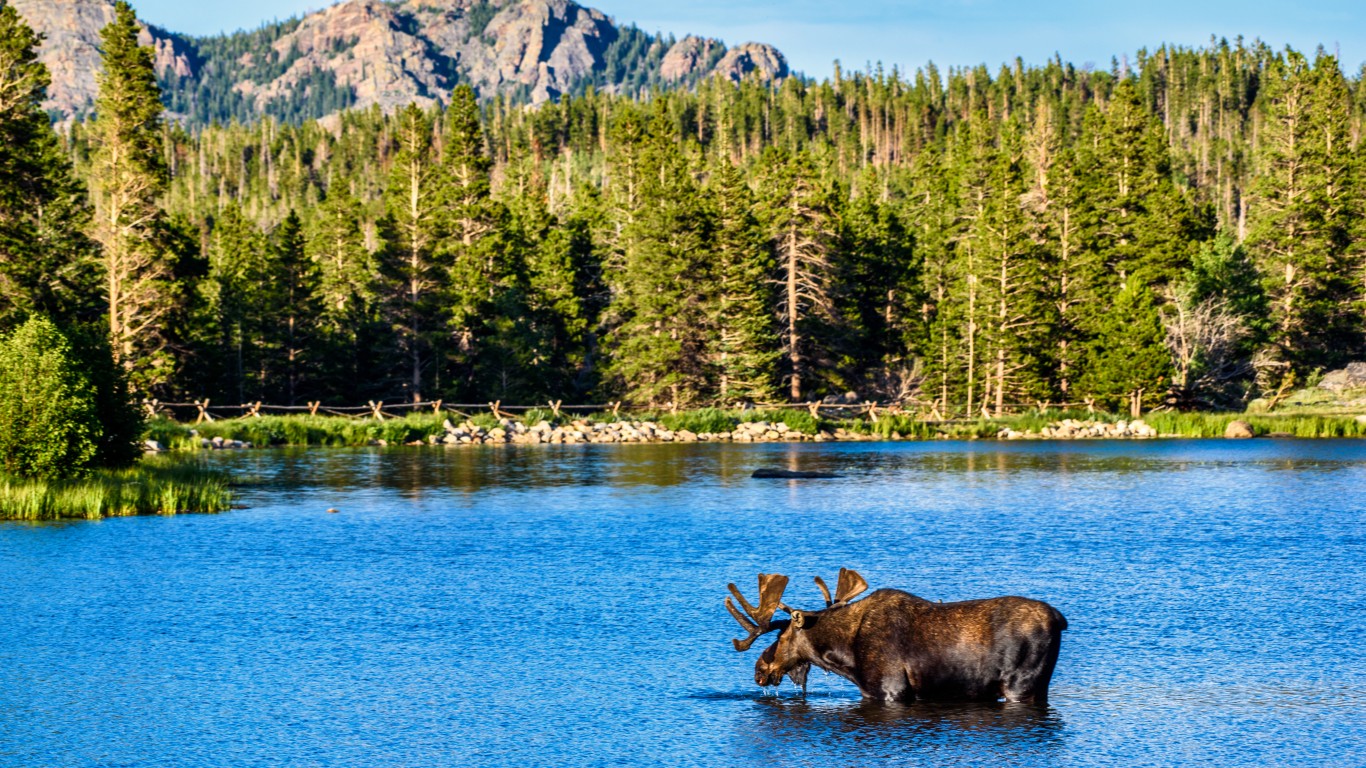
After an extended period in a certain part of Alaska where no hunting was allowed for conservation efforts, the borders were finally open. Rex J. Nick went out hunting near Pilot Station on Game Management Unit 18, near the Lower Yukon River, in 2010, armed with a .300 Winchester Magnum. He dropped the moose from 65 yards away at 7:30 pm. The extended moratorium on hunting allowed the region to drastically improve its stock, resulting in the largest moose ever taken.
2. Eric Arnette – 264
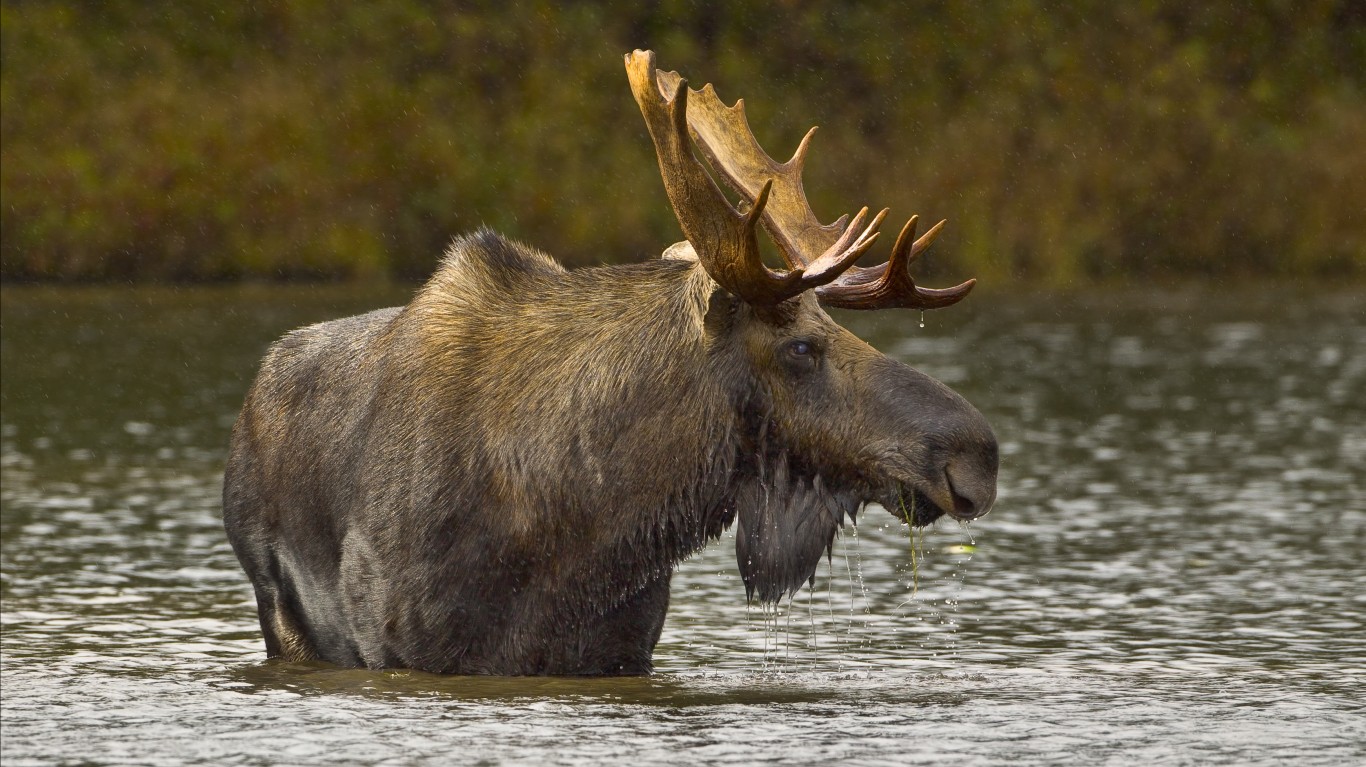
One of the largest moose ever recorded was shot in Alaska in 2004 by a hunter named Eric Arnette. It took 40 minutes to take the moose down, eventually dropping at 50 yards with the help of a .338. The extreme remoteness of the location made the return hell (it weighed 2,300 lbs), but the team had a record on their hands!
3. Jack Frances Nelson – 255-1/2
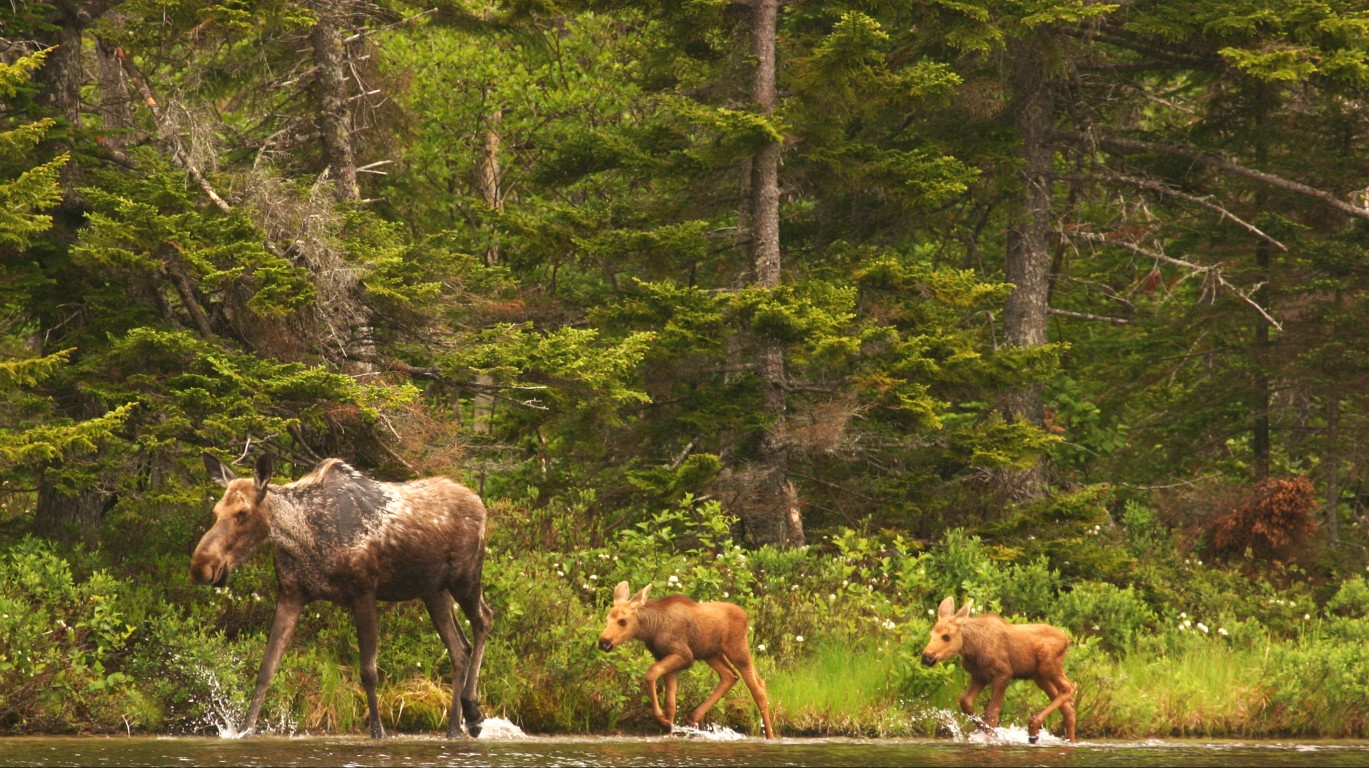
For maybe the cutest story on the list, we have Jack Frances Nelson. Nelson took down one of the largest bull moose ever recorded… and he was only ten years old. His dad helped him track and shoot the moose, giving him detailed instructions the entire time.
Elk
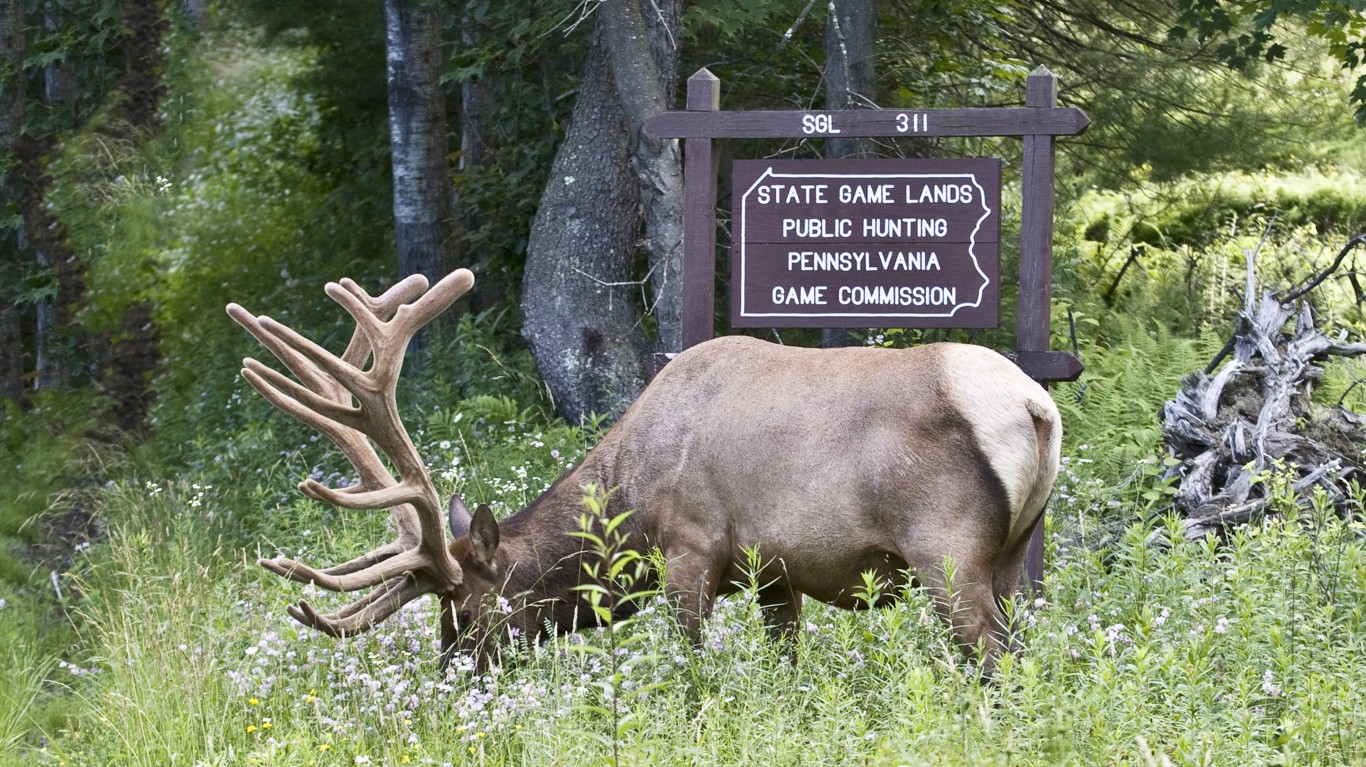
Elk are the second-largest members of the deer family, right behind moose. They are sometimes known as “wapiti” from the native Shawnee and Cree word, which translates to “white rump.” They primarily live in North America, although a population does exist in East and Central Asia.
1. Denny Austad – 478-5/8

The largest elk ever taken was known as the “Spider Bull.” The elk was taken in Utah by a hunter named Denny Austad, who bought a Governers Tag for over six figures, ultimately tracking the bull for months. His first shot, he missed and ended up almost dying in his trailer from carbon monoxide poisoning. Finally, however, he landed a shot at 180 yards. It was so big people thought it had escaped from a game farm.
2. Alonzo Winters – 442-5/8
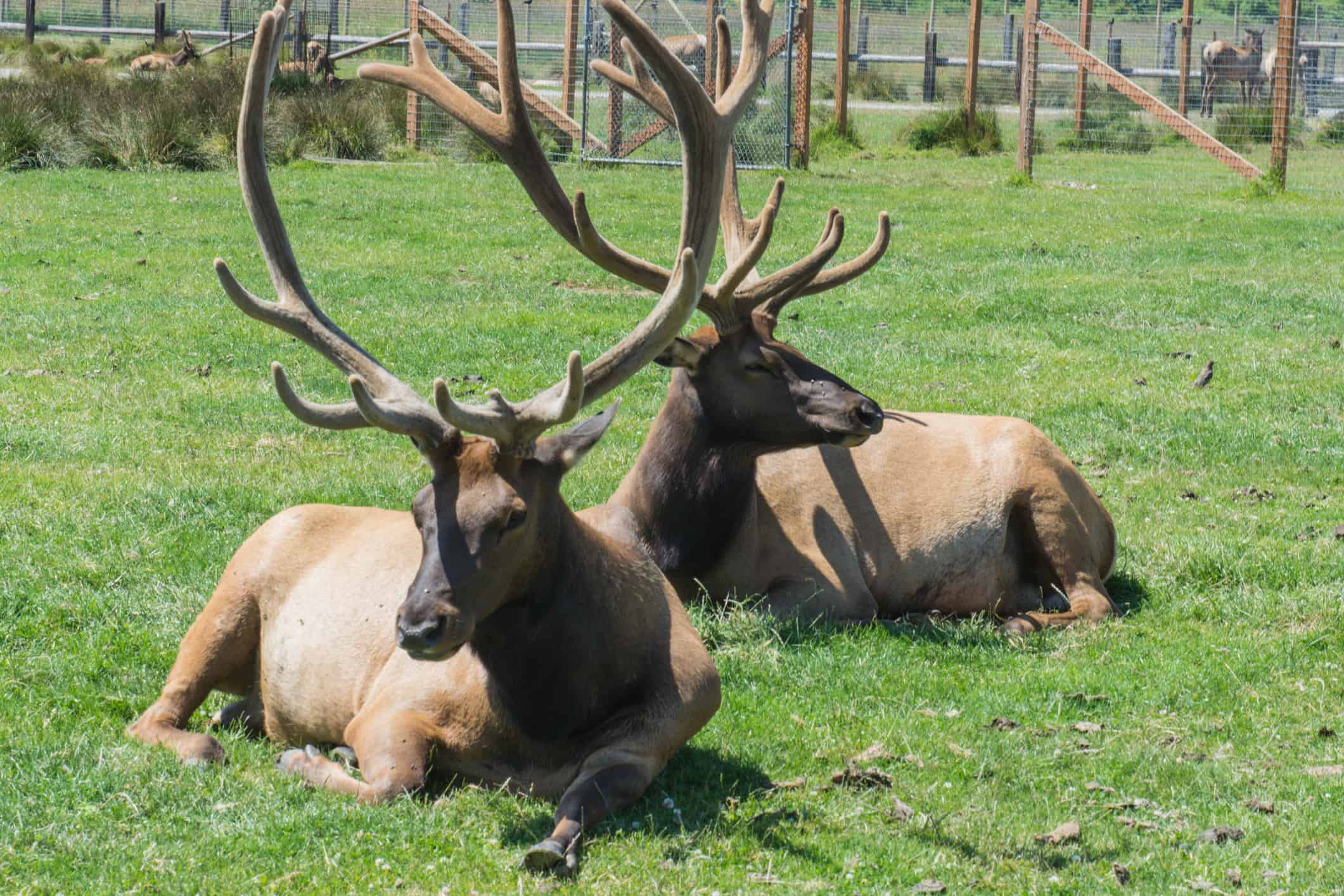
Alonzo Winters landed a massive bull in 1968 when he dropped what is now the typical world record with a Savage Model 99. The rack was taken home and hung in a garage until his passing. When his sister was transporting the rack in her truck, an antler buyer, Alan Ellsworth, saw the rack in the car and followed it. He asked to buy it, then took it to get measured, officially discovering just how massive it was.
3. John Plute – 442 3/8
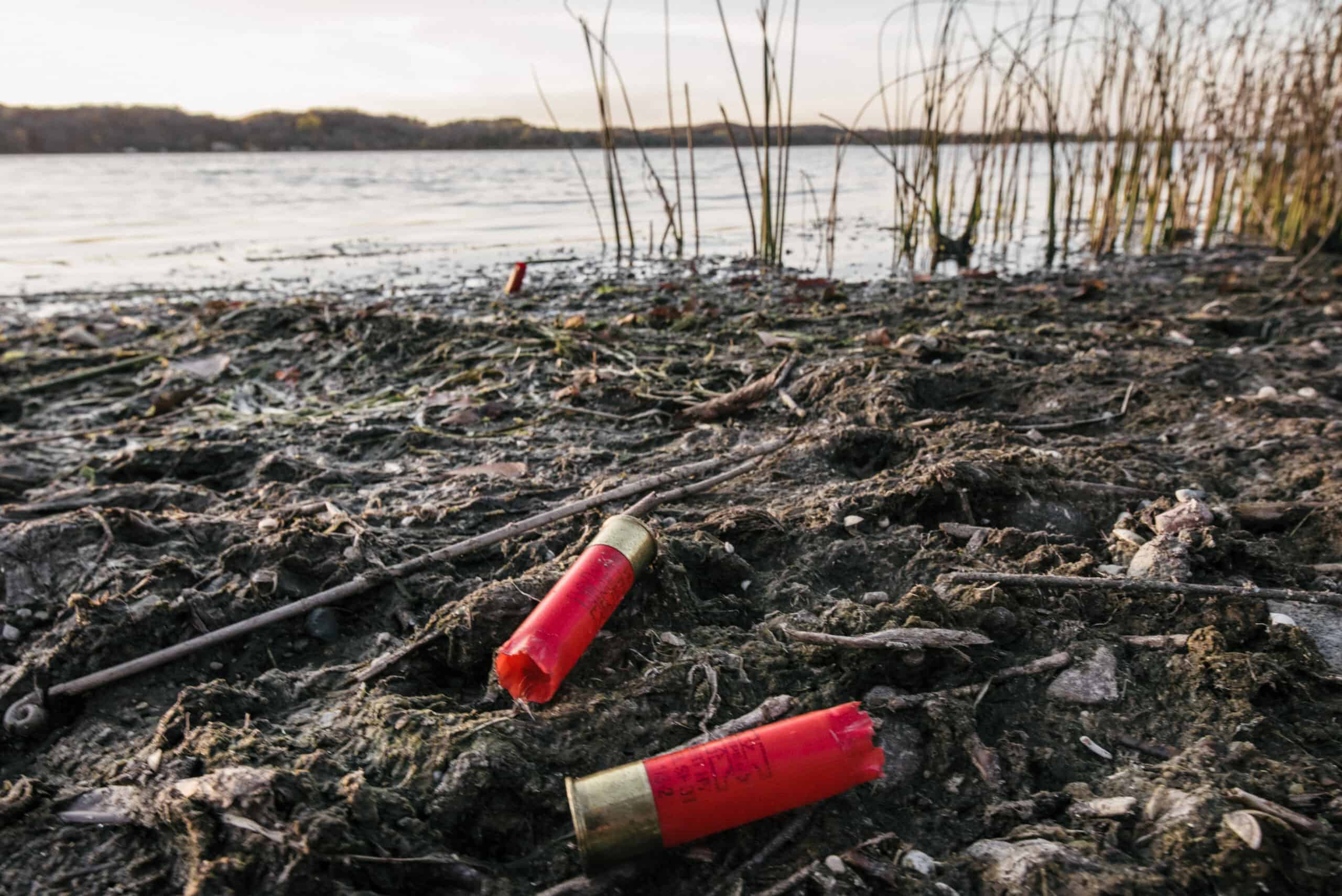
Before Alonze Winters, the John Plute Bull was the largest typical elk record ever. But back in 1899, hunters weren’t bagging for trophies; they were bagging to eat. Plute killed the bull, leaving the antlers and taking the meat, eventually bragging about just how big it was to his buddies. They didn’t believe him, so back he trekked for proof. He found it right where he left it.
In 20 Years, I Haven’t Seen A Cash Back Card This Good
After two decades of reviewing financial products I haven’t seen anything like this. Credit card companies are at war, handing out free rewards and benefits to win the best customers.
A good cash back card can be worth thousands of dollars a year in free money, not to mention other perks like travel, insurance, and access to fancy lounges.
Our top pick today pays up to 5% cash back, a $200 bonus on top, and $0 annual fee. Click here to apply before they stop offering rewards this generous.
Flywheel Publishing has partnered with CardRatings for our coverage of credit card products. Flywheel Publishing and CardRatings may receive a commission from card issuers.
Thank you for reading! Have some feedback for us?
Contact the 24/7 Wall St. editorial team.

